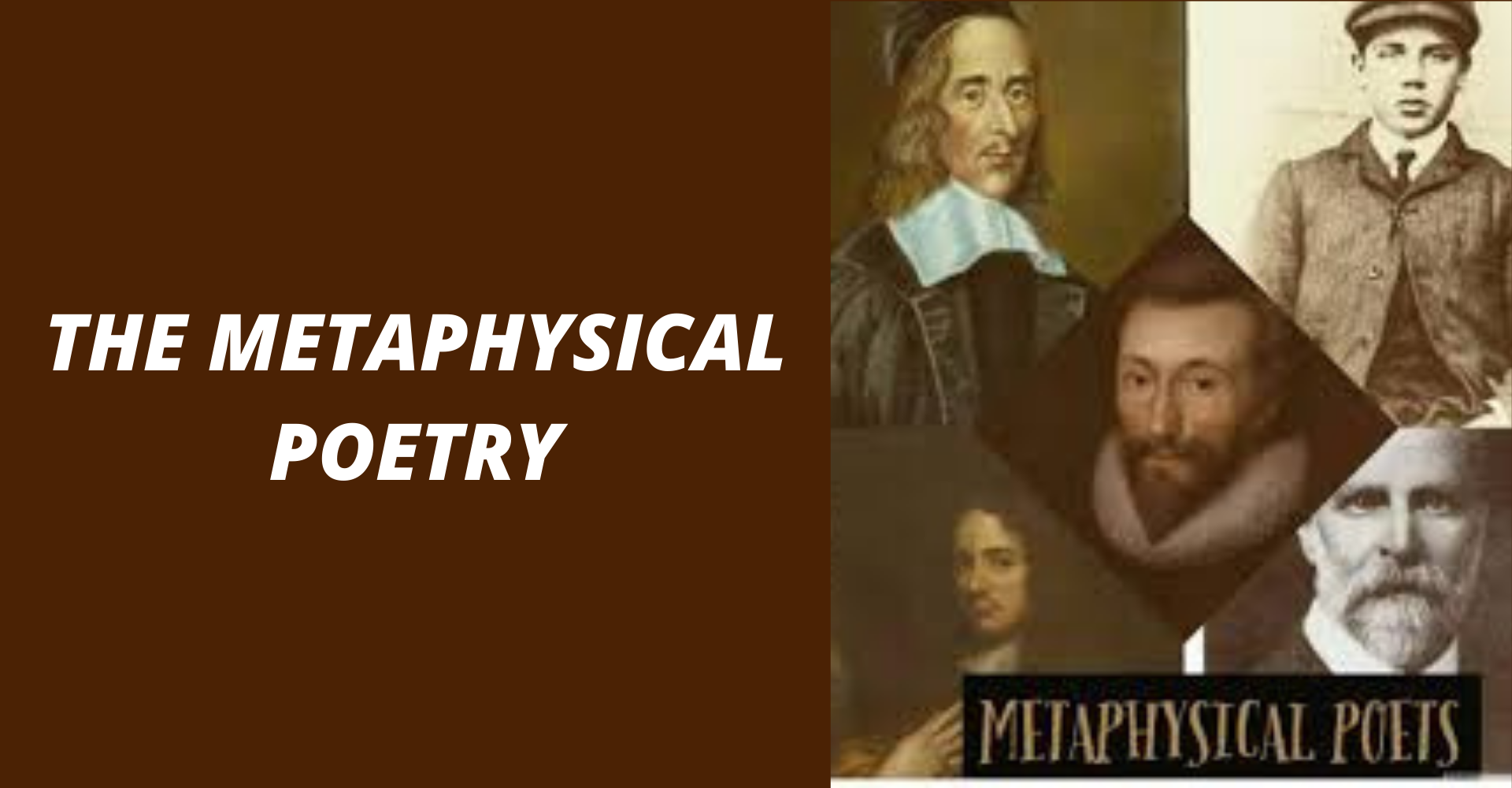The term “Metaphysical” was first applied to poetry by Dr. Johnson who borrowed it from Dryden’s phrase “he affects the metaphysics”. This expression was used in care of a group of poets who wrote under the influence of John Donne. The metaphysical school of poets consisted of Donne, Herbert, Marvell, Gashaw, Vaughan and Cowley. In its traditional sense, metaphysical poetry is a poetry which has been inspired by the philosophical conception of universe, and the role assigned to the human spirit in the great drama of existence. In this sense, Dante’s “Divine Comedy”. Lucretius’s “De Natura Rerum” and Goethe’s “Faust” are metaphysical poems. Thus, in its wide sense, metaphysical poetry means the poetry which is concerned with the problem of ultimate reality. Poets from Donne to Cowley cannot be called metaphysical in the wide sense of the term. As applied in the context of a group of seventeenth century poets, the epithet metaphysical refers to a particular poetic mode or style rather than the subject matter.
John Donne was a leader of metaphysical school of poetry. He was an intellectual realist. Naturally, he revolted against the courtly love poetry of Elizabethan period in which women were adored. It was the view of Donne that woman is a thing of beauty, desirable indeed, but not adorable. Donne had two sides to his character. He started as Jack Donne, the soldier, lover, drinker, writer of passionate amorous verses. He ended up as Doctor John Donne, Dean of St. Paul’s great preacher of sermons, devotes of men and yet the full extremes were in him all his life. As the passionate lover he was always analytic, thoughtful, trying to dissent and explain his passion almost scientifically. As the divine, he approached God with the passion he had formerly shown to women; he addressed Christ with the fierceness of a lover.
With his mind full of medieval learning and interest in modern psychology, scholastic Philosophy and contemporary science along with at heart swelling with finer emotion. Donne came to rescue English poetry from its mellowed music and conventional diction. He broke away from the current styles and refused to follow the tradition of smooth melodies moral parables, translated passion of poor Petrarch’s long deceased woes. He revolutionized poetry. His poetry falls into three divisions: amorous, metaphysical and satirical. However, it is as a metaphysical poet that he remains a great literary figure. All the characteristic of metaphysical poetry are found in his major poems. Some of his well-known poems are “Canonization”. “Progress of the soul”. “The Anniversary”. “Go and Catch, falling star”. A valediction Forbidding Mourning”. “Death be not proud”, etc.
George Herbert was a devotional poet of metaphysical school. Although he was not the first Englishman to compose religious lyrics, he created a new school of verse. Religious poetry before him had been scriptural paraphrases, hymns and meditations. Moreover, no pact except Southwell, had been written religious poetry exclusively. No poet had analysed the religious experience or recorded the defeats and victories of his own soul. As a priest, Herbert felt the need to express his own spiritual conflicts. The lyrics of “The Temple” are born of a desire to give expression to spiritual sorrows of life. In one of his letters to his friend, Herbert clearly writes about the theme of his poetry. You will find in it a picture of many spiritual conflicts that have passed between God and my soul. “The Gifts of God”, “Grace” and “Employment” are other important poems of Herbert.
Also Read :
- Compare Hamlet with Macbeth, Othello and other Tragedies
- “The Pardoner’s Tale” is the finest tale of Chaucer
- Prologue to Canterbury Tales – (Short Ques & Ans)
Marvell’s poems are described as the finest flower of serious and secular metaphysical verse. His work is remarkable for the sublity of wit, the passionate argument and the learned imagery combined with the clarity and control of the classicists such as Jonson. His rhythms are Flexible and his melody is delicate. He loves nature. Marvell successfully assimilates and fuses the intellectuality natural description; he anticipates the sensuousness of Keats, though he is a puritan. He enjoys the beauty and grandeur of nature, which he considers to be God’s bounty. He possesses the mystic vision of Donne, the sensuousness of Spenser the fairy charm and delicacy of He-mick. His love poems as well as his pious poems show a fine balance of metaphysical qualities which even Donne did not always surpass. His little poem “To His Coy Mistress” is a charming bud of metaphysical poetic garden. Garden is a nature poem of Marvell.
Henry Vaughan was one of the remarkable poets of the school of Donne. He was a mystical welsh doctor. From the very inception of his poetic career, Vaughan was fascinated by the phrases of other poets. This is not unusual in a young poet. But the habit of borrowing continued with Vaughan to the end. He was very much influenced by the poetry of Herbert, and even imitated him. He re-handled Herbert’s themes, borrowed his praises, copied his metrical effects, repeated his titles and yet his poems have distinct individuality, whatever he took from Herbert, he transmuted because his way of apprehending was different. The influence of Herbert’s teaching operated? “Conversion” in Vaughan and he become a religious poet. But his religious experience was unlike Donne’s or Herbert’s and required for its expression different imagery and different rhythms. The Retreat is the most important poem of Vaughan.
Other poets of metaphysical school are Richard Crashaw, Thomas Traherme, Thomas Carew, Abraham Cowley and Robert Herrick. All these poets had only historical importance. They did not contribute anything substantial like other poets of his school.
PLEASE HELP ME TO REACH 1000 SUBSCRIBER ON MY COOKING YT CHANNEL (CLICK HERE)











